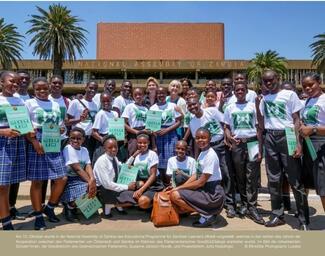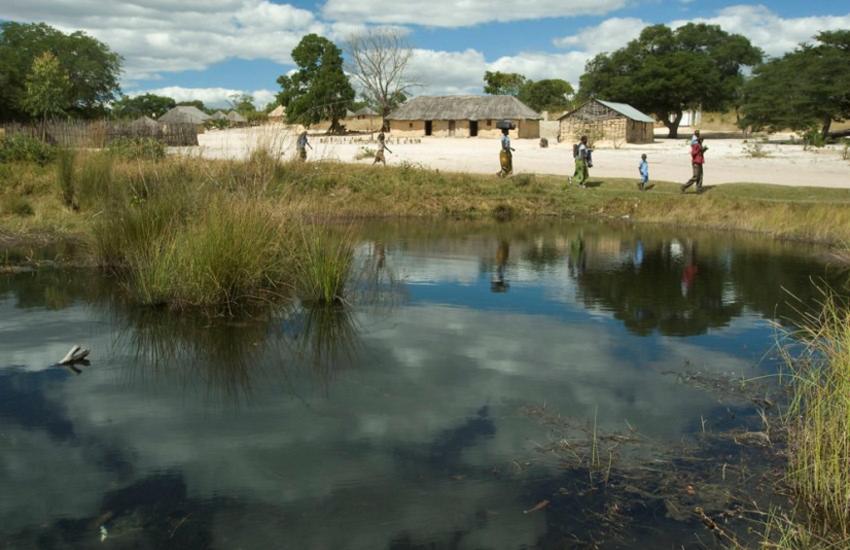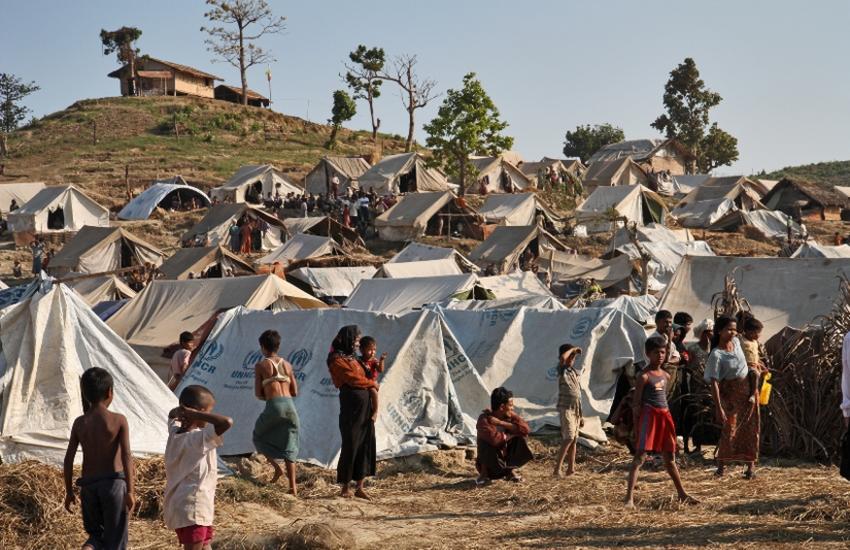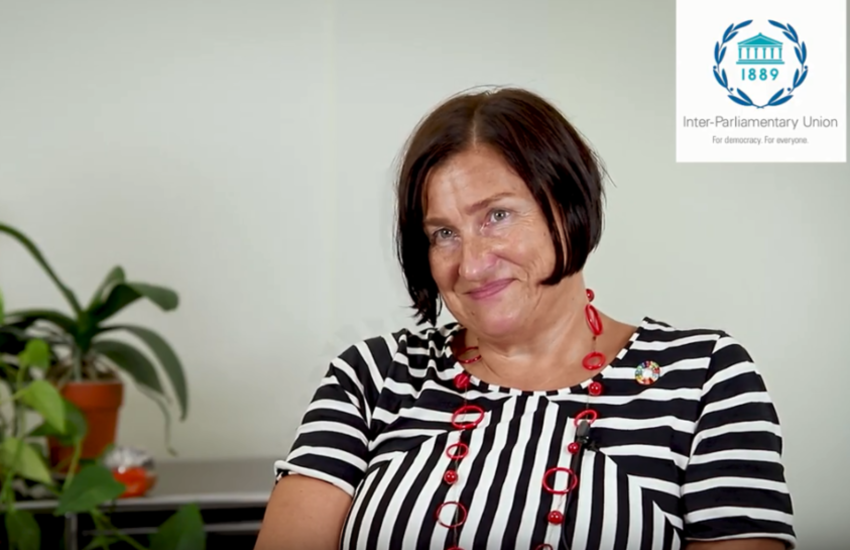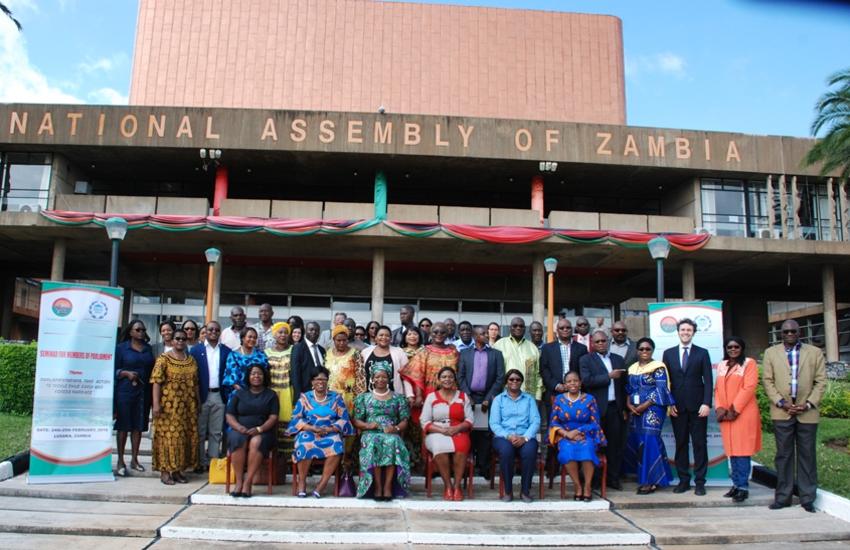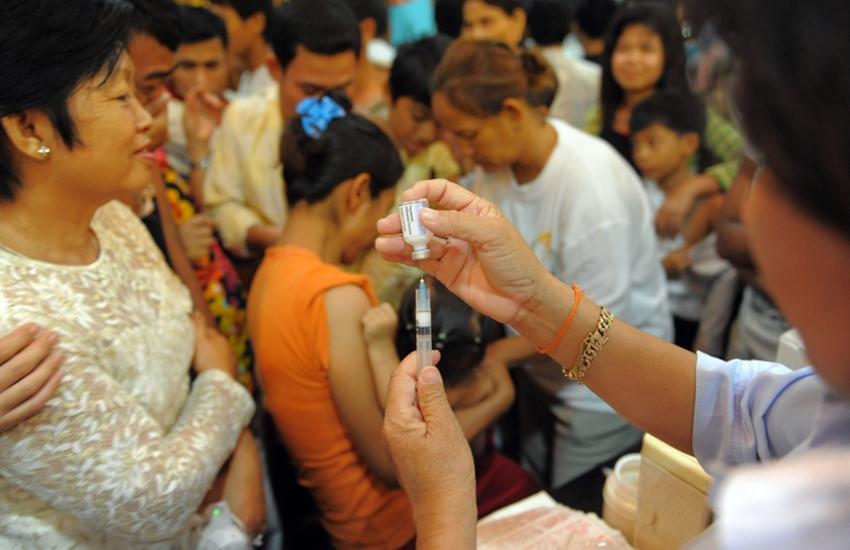The NorthSouthDialogue of Parliaments (PNSD) was an initiative funded by the Austrian Development Cooperation (ADC) and implemented by the Vienna Institute for International Dialogue and Cooperation (VIDC) which supported collaboration between the Austrian Parliament and partner parliaments in the global south. The objective is to strengthen their oversight functions and promote democratic governance with strong institutions based on transparent, representative, accessible, effective and accountable mechanisms. A further goal is to foster people-centered and poverty-focused development policies and legislation to ensure that no one is left behind.
From 2017 to 2019 the PNSD facilitated a targeted partnership focusing on:
- Information and communications technology (ICT) and educational programmes for the National Assembly of Zambia, including: (i) the development of a new ICT strategy that will contribute to a more efficient workflow within the parliament, as well as to enhancing communication with and engagement of citizens to encourage their participation in the legislative process; and (ii) the development of a democratic education programme for children and adolescents to promote the principles of democratic governance and the role of parliament in the democratization process.
- The creation of appropriate national frameworks for the achievement of SDG target 4.4 (increase the number of youth and adults who have relevant technical skills, including technical and vocational skills, for employment, decent jobs, and entrepreneurship); SDG target 4.7 (enhance the knowledge of youth and adults to promote sustainable development and lifestyles); and SDG target 3.7 (promote information and education on sexual and reproductive health).
Results and impact
The partnership contributed to the elaboration of the ICT strategic plan of the Zambian National Assembly aimed at tackling issues such as internal data sharing infrastructure and ICTs used to engage with citizens. A workshop was organized in Lusaka to discuss and define the process, vision, mission and goals of the ICT strategy and prepare a workplan. This was accompanied by an exchange visit in Estonia to learn more about the e-governance framework and participatory tools applied by the Estonian Government and Parliament to ensure transparency, accountability, and openness of public institutions to implement more efficiently expenditures, laws, and programmes. Support was given for the development of handbooks and other materials to strengthen the capacities of MPs and parliamentary staff members on key communication techniques and development issues, including on the role of parliament in guaranteeing that the voices of marginalized populations are considered in SDGs implementation.
One of the partnership’s main contribution was the development and launch of the Education Programme for Zambian Learners, which provides youth with a comprehensive understanding of the functions of parliament and democracy in general, including the values of democratic institutions and the opportunities for active public participation. The programme’s main themes include: an open parliament; active participation; spirit of democracy; access to information; and freedom of expression. Public presentations and exhibitions were organized in parallel in the visitor center of the Zambian National Assembly. A range of thematic exchange visits, peer-to-peer learning events and consultative workshops were also conducted, alongside the development of specific visibility tools. An important additional focus was the engagement of the academic and scientific community in supporting fact-based and evidence-driven law-making and policy reforms.
Challenges
The lack of a longer-term commitment to the continuation of the partnership, insufficient resources to support additional activities, and the lack of dedicated staff members who can provide technical and organizational assistance throughout the different phases of the partnership all presented challenges. The change of MPs following elections and other events during the term of the project make it hard to guarantee continuity. Very diverse preconditions, cultures, and values within the respective countries (e.g., when it comes to vocational training, comprehensive sexual education, accessibility of parliaments) can present practical obstacles.





